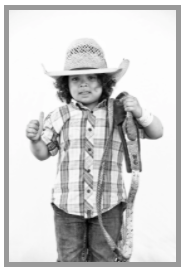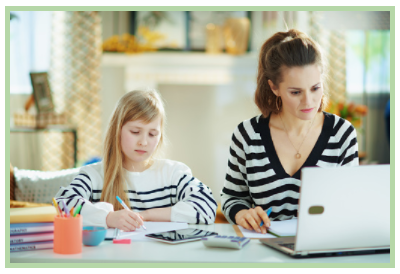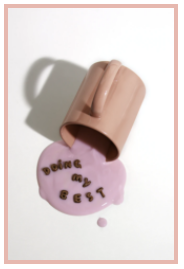20 Communication Habits Effective Parents Practice
Aug 25, 2021
Effective Parents? What’re Those?
First thing’s first: I need to call out the cultural components of parenting and the definition of “effective”.
There’s a wonderful documentary called “Babies” (2010) that really brought this home to me about two years after having my second son: the movie follows the first year of four babies from vastly different backgrounds (the US, nomadic Mongolia, Japan, and tribal Namibia).
I got to see the universal love and the culturally specific parenting that each baby received. I was raised with North American parenting, of the “immigrants from the Old Country now living in the Canadian prairies” variety, so I hadn’t considered the extremes of difference still extant in the 21st century.
Yes, I assumed that parents everywhere loved their children.
Yes, I believed that each parent would do the best they could with their child.
Yes, of course, I knew intellectually that there had to be differences - but what those differences were, how they played out, how they formed worldview? Never crossed my mind.
So, really, the idea of “good” or “effective” parenting is fraught (I LOVE THAT WORD). This means that it’s dangerous to put an ethical, moral, or even functional label on parenting, in the absence of context.
Seems obvious, right?
Does that leave us bereft of any definition of ‘effective parenting’ (because it’s all ‘relative’)? On the surface, perhaps: but I believe there are other elements to be considered, and those are really about humans helping other humans to be fully human (follow that??).
My Why

Given the relative nature of parenting, then, how can I call this article “20 Communication Habits Effective Parents Practice” in good conscience?
And why am I wading into these fraught waters (new favourite phrase!!)?
Well, my work is all tied up in confidence, authenticity, empowerment, communication, and leadership, for one (so parenting comes up A LOT, even when the original arrangement was only work-related - everything is interconnected): and if there’s one thing that parenting (specifically mothers) can benefit from, it’s a healthy dose of support in those areas.
Motherhood (as a subsection of ‘parenting’, where I’m specifically referring to the experience of the woman+) is frequently a terrifying minefield of judgment and belittlement, one that strips normally confident, intelligent women of their power and sovereignty as individuals.
In fact, my entire dissertation revolved around these ideas (and it’s written as a one-woman show, within a novella, within a thesis, so it’s not as boring as you might think! - gratuitous self-aggrandizement there, btw).
It’s a natural extension of my beliefs, work, education, and experience to “play” in this space (plus, I’ve two teenage boys).
Every single woman I work with has stories about the parenting she received, and if she’s a mother, stories about the kind of mother she should be and the kind of mother she is. Unsurprisingly, very few women I work with confidently and authentically say, “I’m a great mother”.
Are they great mothers? I’d be willing to bet most of them are very good, even great, but they either don’t believe that OR they are afraid of the consequences of saying that aloud - similar to self-promotion in the workplace.
Impostor Syndrome is alive and well within the motherhood realm.
Not My First Rodeo

You might find this surprising, but ‘mothering’ is actually an area of academic research (it shouldn’t surprise you, given its importance), one that I’ve been involved with for many years.
Like most things in my life, I haven’t been content to accept the “received” wisdom as de facto ‘wise’.
I wrote about the idea of “Mother work” in the Encyclopedia of Motherhood (2010, pp. 722-24): this idea really boils down to the belief that
a mother who loves herself is then able to love a child, and in doing so teaches the child that he or she is worthy of being loved. This instills a sense of self-esteem and a loved sense of self that empowers in the face of adversity.
This isn’t attached to income, education, location, age, gender identity - it’s attached only to being human.
However, we’re left with a very real conundrum: if you, as a mother, do not love yourself, how can you communicate effectively and authentically, so that your child can hear your love of yourself, and therefore of the worthiness of themselves?
Kids can see through our bullshit, I assure you. They know inauthentic when they experience it.
Now, I know these are deep ideas, and seemingly not the subject of the blog, but stick with me a minute: my mother, for instance, had a very, very rough childhood.
Abuse, poverty, neglect, violence, all of these things (and more) completely stripped her world of stability, love, and safety.
She didn’t learn to love herself - she didn’t (and largely still doesn’t) regard herself as worthy of love.
As a result, her ability to engage in mother work where her love of herself was transferred to me, was decimated.
She took care of me, she made sure I was safe, fed, well-educated, etc., - all the things she didn’t have growing up - but there was no warmth, no depth to the love that she imbued me with because it simply wasn’t in her.
I was raised believing that there was only one way to raise kids properly: my parents’ way.
As a mother of two myself, I can fully appreciate where my parents were coming from - after all, you try to parent in the way that you think is ‘best’, and that, by definition, means that others’ approaches are not ‘the best’.
There was no such thing as equanimity or philosophizing around the topic of parenting in my parent’s house: black and white, right and wrong, those were the parameters of my experience.
And had I not ended up working with diverse families in the field of communication, authenticity, leadership, etc., I would likely have continued to believe that “one size SHOULD fit all”.
However, I have witnessed (and been part of) many different approaches to parenting that lead to really good kids, and happy families.
Effective Parenting, meet Effective Leadership

I would argue, however, that there are patterns of parenting that are more productive and lead more quickly to positive outcomes (and build and maintain strong, healthy relationships) than others.
Again, I have seen (and experienced) these patterns across a multitude of situations, whether the diversity is cultural, religious, educational, economic, or value systems.
It hinges on a few key things:
- clear communication
- respect and inclusion
- authenticity and courage
- accountability and responsibility
- compassion and care.
Interestingly, I see the exact same requirements coming out of effective leadership, too, so clearly, there is something larger at play here.
Being a parent is the hardest leadership job you will ever have - and it is leadership, make no mistake: it is terrifying, relentless, unpredictable, wildly emotional, and people will be eager to tell you what you’re doing wrong...publicly.
Also sounds like leading teams and organizations, IMO.
Further, much like leadership, you can’t be an effective parent if you don’t know who you are, what you stand for, and where your boundaries are, and where you intend to go, especially women.
I say “especially women” intentionally, because - like it or not - we’re the culture-bearers and likely the ones who will have the deepest influence on those in our care.
So much of my work is about digging into the stories we’ve been told, told ourselves, or have been immersed in, unknowingly.
Parenting is no different. If you’ve had the chance to get to know yourself and your stories before becoming a parent, you’re a step ahead: however, if you’ve entered motherhood without the benefit of that deeply personal work (which, incidentally, does not require that you’ve spent years in therapy), you can still engage your child(ren) in ways that allow you to balance your journey and theirs (which, believe it or not, is NOT the same journey) respectfully and effectively.
The Habits

And that is what this “Habit List” is meant to give you: a bit of a ‘how-to’ or a roadmap for that journey, no matter if you’re thinking about having kids, is in the trenches with toddlers or teens or working to establish healthy parenting boundaries with adult children (Heads-up: once you’re a mother, you’re on the hook for life. Just sayin’).
Put this list on your fridge.
Put it in your phone.
Write it out in your journal.
Make a recording or a checklist that helps you remember.
Work on a habit a day, a week, a month.
Cycle through them to build your competence and confidence.
Name what you’re doing with your children, and give them the self-awareness and language that will help them employ these ideas in their lives, and their own future parenting journeys.
- Listen to understand (rather than simply waiting to take a turn)
- Ask open-ended questions
- Admit you don’t have all the answers (or, sometimes, any of the answers)
- Admit when you’re wrong
- Acknowledge your emotions (needs some help with the words of emotion? Check out Plutchik’s Wheel of Emotion)
- Recognize the difference between facts and opinions
- Realize the stories we tell ourselves about ourselves and the world are just that - stories based on beliefs and biases
- Act with accountability based on clear understandings
- Expect accountability, with clear expectations
- Stop talking all the time
- Stop being too busy/distracted to engage person-to-person
- Model respectful communications in all situations and with all people
- Laugh at yourself
- Get to know yourself so you can engage with authenticity
- Live in the “now” - not the past or the future
- Understand that stress prevents anyone from being able to think clearly - and make accommodations to respect this
- Don’t use words as weapons
- Make eye contact
- Use accessible language
- Co-create conversations, solutions, approaches, etc.,
This list is really about humans being humans WITH other humans - striving for connection and understanding, rather than dominance.
By the way, I invite you to try a little thought experiment: re-read the list, but think about it as if this were a list about “How to be an Effective Leader”.
Do you see what I see??? ;-)
You are amazing by virtue of being here. You are one-of-a-kind, by definition. That is truly the most wondrous thing if you think about it. Embrace it, and teach those around you to do the same.
Go forth, be effective, live life fully.
Until soon! xoxo d
ps. check out https://www.facebook.com/teewithd to follow and/or like the stuff I’m talking about, plus take the opportunity (while you’re there!) to join The TEEHouse, a wee group I’m starting to build to support and connect women interested in the sort of stuff we ‘serve’ at TEEwithD. Find me on LinkedIn at https://www.linkedin.com/teewithd to see when and where I’m speaking next. Check out weekly blogs/vlogs/podcasts, a fun quiz, reflection guide, and lots of sass on my Mother Ship: https://www.teewithd.com See you there! xoxo


